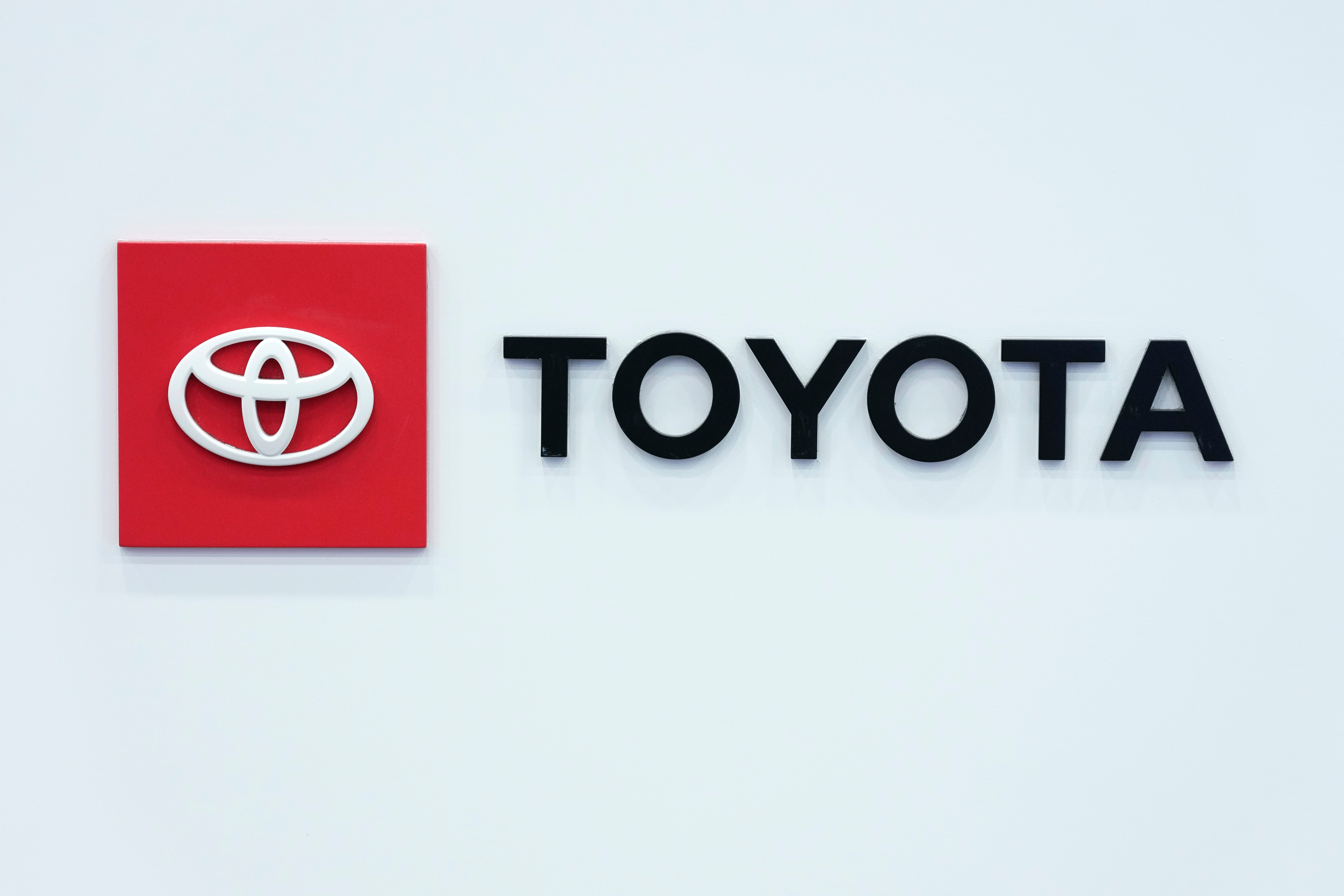Japanese automaker Toyota's profits zoom on cheap yen, strong global sales
Toyota’s profit in the latest quarter jumped nearly threefold from a year ago as vehicle sales grew around the world and a cheap yen boosted the Japanese automaker’s overseas earnings

Your support helps us to tell the story
From reproductive rights to climate change to Big Tech, The Independent is on the ground when the story is developing. Whether it's investigating the financials of Elon Musk's pro-Trump PAC or producing our latest documentary, 'The A Word', which shines a light on the American women fighting for reproductive rights, we know how important it is to parse out the facts from the messaging.
At such a critical moment in US history, we need reporters on the ground. Your donation allows us to keep sending journalists to speak to both sides of the story.
The Independent is trusted by Americans across the entire political spectrum. And unlike many other quality news outlets, we choose not to lock Americans out of our reporting and analysis with paywalls. We believe quality journalism should be available to everyone, paid for by those who can afford it.
Your support makes all the difference.Toyota’s July-September profit jumped nearly threefold from a year ago as vehicle sales grew around the world and a cheap yen boosted the Japanese automaker’s overseas earnings.
Toyota Motor Corp. reported Wednesday 1.28 trillion yen ($8.5 billion) in quarterly profit, up from 434 billion yen the previous year. Quarterly sales rose 24% to 11.43 trillion yen ($75.7 billion) from 9.22 trillion yen.
A cheap yen is a plus for Japan’s giant exporters like Toyota by raising the value of its overseas earnings when translated into yen. The U.S. dollar was trading at about 145 Japanese yen in the latest quarter, up from 138 yen. It’s trading above 150 yen lately.
The manufacturer of the Camry sedan, Prius hybrid and Lexus luxury models raised its profit forecast for the fiscal year through March 2024 to 3.95 trillion yen ($26 billion), up from the previous projection of 2.5 trillion yen.
The forecast, if realized, marks an improvement from the previous fiscal year’s 2.45 trillion yen profit, and will be a record high for Toyota.
Toyota is expecting its vehicle sales to grow in most major regions, officials said. Toyota’s vehicle sales for July-September grew from the previous year in the U.S., Europe, Japan and the rest of Asia, totaling more than 2.4 million vehicles globally, up from 2.1 million the previous year.
Toyota kept unchanged its forecast of selling 11.38 million vehicles for the full fiscal year worldwide.
Toyota has acknowledged it has fallen behind in battery electric vehicles to frontrunner rivals like U.S. EV maker Tesla and BYD of China. Toyota has shown concepts recently that reflect how it’s serious about catching up.
Earlier this week, Toyota said it’s investing an additional $8 billion in the hybrid and electric vehicle battery factory it’s constructing in North Carolina, more than doubling its prior investments.
The new investment is expected to create 3,000 additional jobs, to a total of more than 5,000 jobs when its first U.S. automotive battery plant begins operations near Greensboro in 2025.
The plant is designed to be Toyota’s main lithium-ion battery production site in North America and will be a key supplier for the Kentucky-based plant that’s building its first U.S.-made electric vehicles.
Toyota sold fewer than 25,000 EVs worldwide last year, although in the first eight months of this year, it sold 65,000, mostly outside Japan. Toyota is targeting sales of 1.5 million EVs a year by 2026 and 3.5 million by 2030.
A shortage of computer chips caused by the social restrictions of the coronavirus pandemic had previously slammed the supply chain and hurt Toyota sales. But that has gradually eased.
Vehicles that aren’t gas-guzzlers are increasingly popular in various markets because of environmental concerns. Besides battery EVs, Toyota is also banking on other kinds of ecological vehicles, such as fuel cells that run on hydrogen and hybrids that have both an electric motor and gasoline engine.
___
Hannah Schoenbaum in Raleigh, N.C. contributed to this report. She is on X, formerly Twitter https://twitter.com/H_Schoenbaum
Yuri Kageyama is on X, formerly Twitter https://twitter.com/yurikageyama